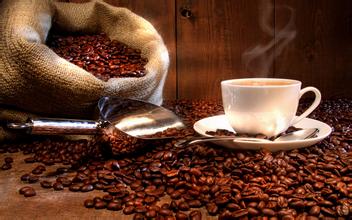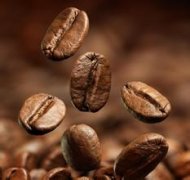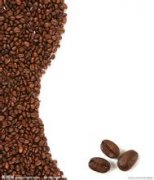A brief introduction to the planting Market Price of Fine Coffee Bean varieties in Valenford Manor

The best Blue Mountain Coffee is undoubtedly one of the best coffee available. Although the price can ensure an adequate supply of Blue Mountain coffee, it does not guarantee the best flavor of the coffee. Also, this kind of coffee tastes much more expensive than it looks. If you want to taste its best flavor, you have to put more coffee beans than other coffee, otherwise the flavor will be a little different, so the flavor is that it has 10% to 15% more coffee beans than the coffee whose price is inferior to it.
The kinds of Blue Mountain Coffee
There are three grades of coffee in the Blue Mountains of Jamaica: blue Mountain Coffee (Blue Mountain Coffee), Alpine Coffee (Jamaica High Mountain Supreme Coffee Beans) and Jamaican Coffee (Jamaica Prime Coffee Beans). Among them, Blue Mountain Coffee and Alpine Coffee are each divided into two grades. In terms of quality, the order from top to bottom is: blue Mountain 1, Blue Mountain 2, Gaoshan 1, Gaoshan 2, Jamaican Coffee.
Usually, coffee grown between 457m and 1524 m above sea level is called alpine coffee; coffee grown between 274m and 457m above sea level is called Jamaican coffee; and only coffee grown in blue mountain areas above 1800 m above sea level can be called Blue Mountain Coffee, which is several times higher in price than alpine coffee. It is mainly distributed in 5 peaks such as John Crow,St.John's Peak,Mossman's Peak,High Peak,Blue Mountian Peak.
Everyone knows that Blue Mountain Coffee is the best coffee in the world. Do you know why it is so good? What's good about it? The answer is: Jamaica's weather, geological structure and topography together provide a unique ideal place. The Blue Mountain Mountains have an average elevation of 2100 meters, with fertile volcanic soil, fresh air, no pollution, humid climate, foggy and rainy all the year round (the average precipitation is 1980 mm and the temperature is about 27 degrees). The unique environment and climate have created the world-famous Blue Mountain Coffee, which has the characteristics of all the world's high-quality coffee: not only has a rich and mellow taste, but also because of the perfect combination of sweet, sour and bitter coffee. So there is no bitterness at all, only a moderate but perfect sour taste
The north-central region is rich in rainfall, the climate is generally between 22 and 32 degrees, and the annual average temperature is 27 degrees. The country is divided into three counties: Cornwall, Middlesex and Surrey. The three counties are further divided into 14 districts, of which Kingston and St. Andrews form a joint district, so there are actually only 13 district governments. The names of the districts are as follows: United District of Kingston and St. Andrew, St. Thomas, Portland, St. Mary, Santa Ana, Trelawney, St. James, Hanover, Westmorland, St. Elizabeth, Manchester, Clarendon, St. Catherine (11) ministers of state of the current government (11) were sworn in on September 17: Robert Montague (RobertMontague), Minister of State of the Prime Minister's Office (responsible for local government affairs). Shahin Robinson (ShahineRobinson), Minister of State of the Prime Minister's Office (responsible for constituency development funds); Darryl Gas (DarylVaz), Minister of State of the Prime Minister's Office (responsible for government project supervision); Andrew Gallimore (AndrewGallimore), Minister of State of the Ministry of Labour and Social Security; Joseph JosephHibbert, Minister of State of the Ministry of Transportation and Engineering Evelard Warmington (EveraldWarmington), Secretary of State for Water Conservancy and Housing; Michael MichaelStern, Secretary of State for Industry, Commerce and Investment; William Hutchinson (WilliamHutchinson), Secretary of State for Agriculture; Lawrence Broderick (LaurenceBroderick), Secretary of State for Energy, Mining and Telecommunications; Arthur Williams (ArthurWilliams), Secretary of State for National Security Ronald Robinson (RonaldRobinson), Minister of State, Ministry of Foreign Affairs and Foreign Trade
Jamaica is a tiny coffee grower, accounting for only 0.02 per cent of the world market, with 85 per cent of its exports to Japan.
Among them, the leading role is the Jamaican Coffee Industry Association (Coffee Industry Board, referred to as CIB), which was established in 1948 to promote the development of the Jamaican coffee industry, improve the income of coffee farmers, protect the quality of Jamaican coffee, and sell Jamaican coffee around the world.
In order to ensure the quality of Blue Mountain Coffee, CIB has made a series of specifications:
1. Clearly define the production area
two。 Choose to plant Arabica tin card varieties
3. Training coffee farmers (planting techniques, harvest handling techniques, environmental protection, etc.)
4. Improve coffee processing skills (insist on picking by hand, picking only fully ripe red fruits; use water washing; control drying conditions so that the target moisture content of coffee beans is 12%).
Everyone knows that Blue Mountain Coffee is the best coffee in the world. Do you know why it is so good? What's good about it? The answer is: Jamaica's weather, geological structure and topography together provide a unique ideal place.
The Blue Mountain Mountains have an average elevation of 2100 meters, with fertile volcanic soil, fresh air, no pollution, humid climate, foggy and rainy all the year round (the average precipitation is 1980 mm and the temperature is about 27 degrees). The unique environment and climate have created the world-famous Blue Mountain Coffee, which has the characteristics of all the world's high-quality coffee: not only has a rich and mellow taste, but also because of the perfect combination of sweet, sour and bitter coffee. So there is no bitterness at all, only a moderate but perfectly sour blue mountain coffee is the "secret" of why it tastes pure: their coffee trees are on rugged hillsides, and the picking process is so difficult that non-local skilled women are simply incompetent. It is very important to choose the right ripe coffee beans when picking. Immaturity or ripeness will affect the quality of the coffee. The picked coffee beans are shelled on the same day, and then let them ferment for 18 hours. After that, the coffee beans were cleaned and screened. The subsequent process is to dry, which must be carried out on the cement floor or on a thick blanket until the humidity of the coffee beans drops to 12% 14%. And then store it in a special warehouse. Take it out and roast when needed, then grind it into powder. These procedures must be strictly mastered, otherwise, the quality of coffee will be affected.
The Jamaican flag has a pair of crossed yellow diagonals and four juxtaposed triangles, the upper and lower triangles are green, and the left and right triangles are black Black represents the hardships that have been overcome and is facing, yellow represents natural wealth and sunshine, and green represents hope and agricultural resources. more than 90% of the people of Jamaica are black in Africa and have a general tendency to be younger. About 60% of the population is under the age of 29, but as a result of marriage with other races over the past century, Jamaica has a more unique culture. However, African culture still has a far-reaching influence here, whether in food, clothing, housing, transportation, and even music, dance, language, folk stories and other aspects can feel the tropical rain forest climate. The rainy season is from May to June and from September to November every year, with the most showers in January and May. The dry season is from December to March next year, and the weather turns cooler. The half-year period from June to the end of November is often hit by hurricanes and tropical storms.
Important Notice :
前街咖啡 FrontStreet Coffee has moved to new addredd:
FrontStreet Coffee Address: 315,Donghua East Road,GuangZhou
Tel:020 38364473
- Prev

A brief introduction to the Origin, Development, History and Culture of Fine Coffee beans in Valenford Manor
There are three grades of Blue Mountain Coffee in the Blue Mountain region of Jamaica: blue Mountain Coffee (Blue Mountain Coffee), Alpine Coffee (Jamaica High Mountain Supreme Coffee Beans) and Jamaican Coffee (Jamaica Prime Coffee Beans). Among them, Blue Mountain Coffee and Alpine Coffee are each divided into two grades. From quality to quality
- Next

A brief introduction to the cultivation of boutique coffee beans in Valenford Manor, geographical location, climate and altitude
The Jamaican flag has a pair of crossed yellow diagonals and four juxtaposed triangles, the upper and lower triangles are green, and the left and right triangles are black; black represents the hardships that have been overcome and are facing, yellow represents natural wealth and sunshine, and green represents hope and agricultural resources. More than 90% of the people of Jamaica are African blacks and are generally young.
Related
- Does Rose Summer choose Blue, Green or Red? Detailed explanation of Rose Summer Coffee plots and Classification in Panamanian Jade Manor
- What is the difference between the origin, producing area, processing plant, cooperative and manor of coffee beans?
- How fine does the espresso powder fit? how to grind the espresso?
- Sca coffee roasting degree color card coffee roasting degree 8 roasting color values what do you mean?
- The practice of lattes: how to make lattes at home
- Introduction to Indonesian Fine Coffee beans-- Java Coffee producing area of Indonesian Arabica Coffee
- How much will the flavor of light and medium roasted rose summer be expressed? What baking level is rose summer suitable for?
- Introduction to the characteristics of washing, sun-drying or wet-planing coffee commonly used in Mantenin, Indonesia
- Price characteristics of Arabica Coffee Bean Starbucks introduction to Manning Coffee Bean Taste producing area Variety Manor
- What is the authentic Yega flavor? What are the flavor characteristics of the really excellent Yejasuffi coffee beans?

